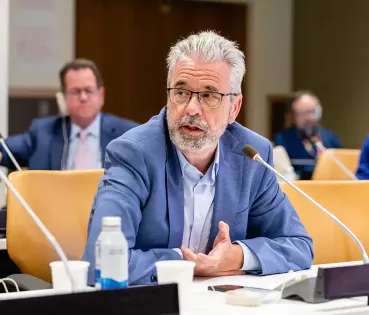
Health cooperatives, protagonists on the United Nations agenda
The participation of the Espriu Foundation in the High-Level Political Forum reinforces the role of health cooperativism in achieving the Sustainable Development Goals.
Are cooperatives ready to implement the Sustainable Development Goals? To respond to this question, a session of the United Nations High-level Political Forum was held in New York on the 15th of July. The meeting brought together representatives from Member States and development agencies alongside cooperative leaders from all over the world.
What role do health cooperatives play in Spain?
Carlos Zarco, General Director of the Fundación Espriu intervened at this meeting, emphasising the role of health cooperatives in achieving the SDG3: good health and well-being. He recalled that over 100 million people in over 70 countries have access to healthcare through cooperatives, which offer a wide range of services: primary care, hospital management, pharmacy networks, insurance, telemedicine and care for the elderly.
Dr. Zarco underscored the fact that the democratic governance of these entities encourages innovative solutions adapted to the needs of each community, such as home care and digital services. He also underlined the fact that health cooperatives complement the public systems and extend healthcare cover, reinvesting their excess in training, infrastructures and technological innovation.
These ideas were backed by the documents that the United Nations made public in July. The report by the Secretary General on cooperatives in social development emphasises the capacity of these organisations to eradicate poverty, create decent employment and to promote social cohesion. In particular, he underlined how health cooperatives extend access to healthcare and offer an approach that is centred on people and on the community.
Health cooperatives, key to the 2030 Agenda
The Ministerial Statement of the High-Level Political Forum insists on the fact that health is essential for sustainable development and it calls to strengthen the health systems, moving forward towards universal healthcare cover and to improving the preparation against pandemics and other emergencies.
The recognition by the United Nations, along with the experiences shared in the forum, confirm that cooperatives are key actors for building inclusive, resilient health systems, capable of speeding up the fulfilment of the 2030 Agenda.




